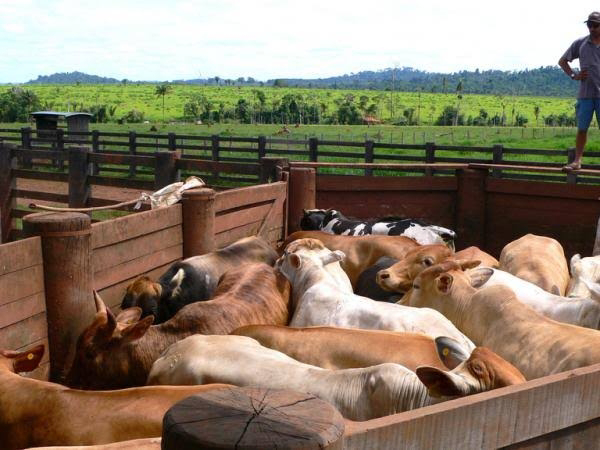In Defence of Ranching of Grazing Livestock for Peace and Progress in Nigeria
By Ogiri John Ogiri.
Unpalatable phenomena of the last few years in Nigeria as they concern constant conflicts escalating between herdsmen and farmers have thrust upon us a whole new responsibility of devising or adopting new models of pastoralism suitable for a 21st Century Nigeria. A look at many available statistics in the country will reveal that Nigeria has recorded hundreds of herdsmen-related deaths in the last five years across many States namely Benue, Taraba, Plateau, Enugu, Adamawa, Ondo, Oyo among others. This painful development has come to strengthen the evidential proof that the old method of extensive animal herding by herders can no longer be sustainable. This is why, in the interest of national peace and progress, ranching has been (and should continue to be) adopted by many States with bans on open grazing of animals. For instance, in Benue State, the Open Grazing Prohibition and Ranches Establishment Law was passed in 2017. Others are those of Oyo, Ondo among other States. What this has come imply is that, those interested in the rearing of Cattle and other grazing livestock in those States can only do so through the ranch system. It requires the prospective herder applying to the state government requesting for land allocation. Once all necessary legal processes are concluded, the herder can proceed with his or her animal rearing business in a ranch undisturbed. Ranching is key among the many fundamental factors necessary for ending Herders-Farmers crises in Nigeria.
The online edition of the Encyclopaedia Britannica (2021) explains that a Ranch is a farm, usually large, devoted to the breeding and raising of cattle, sheep, or horses on rangeland. Ranch farming, or ranching, originated in the imposition of European livestock-farming techniques onto the vast open grasslands of the New World. Spanish settlers introduced cattle and horses into the Argentine and Uruguayan pampas and the ranges of Mexico early in the colonial period, and the herding of these animals spread readily into what is now the southwestern United States. The term "ranch" has a Spanish origin. It originated from "rancho".
Spiegal, S. et all (2019) in their "Rangeland Livestock Production in North America" explained that, a ranch is an area of land, including various structures, given primarily to the practice of ranching, the practice of raising grazing livestock such as cattle and sheep most often applies to livestock-raising operations in Mexico, the Western United States and Western Canada, though there are ranches in other areas.
According to a data on world dairy production by World Data Atlas(2020) accessed from Knoema.com, India produced the largest tonnes of milk in the world. As of 2020, production of milk in India was 194,800 thousand tonnes that accounts for 40.56% of the world's production of milk. The top 5 countries (others are the United States of America, China, Russian Federation, and Brazil) account for 80.80% of it. The world's total production of milk was estimated at 480,256 thousand tonnes in 2020. In beef production, these countries still top the list of largest producers with Nigeria hopping from afar. Yet, these countries have continued to enjoy relative peace as there are little or no reported cases of any large scale Farmers/Herders conflicts in those countries. This perhaps was possible due to enabling environments created by those countries to enable herders adopt ranching.
Ranching at least stops unnecessary movements of animals by herders from one place to another so that the possibility of any hostile contact or confrontation between herders and local farmers is significantly reduced,if not completely eliminated. It can even boost the productivity potential of the ranched herds of animals; high quality meat outputs, high yields of robust milk, skins and hides, manures etc. Economically, assured and stable employment opportunities for labour, more income and revenue, a more significant contribution to our foreign exchange earnings as well as a significant boost in our Foreign Direct Investments (FDIs) drive can be hugely contributed by ranching.
Nigeria is not even close to any of the countries identified above in dairy and beef production yet she has witnessed more incidences of deadly attacks from some disgruntled herdsmen than the countries considered in the statistics above. This should not be.
Let us embrace ranching to stop unnecessary encroachments into lands belonging to indigenous host communities. Ranching is, so far, adjudged as one of the most successful pastoral farming models in the modern era.
The government should create an enabling environment for herders to embrace ranching. Issues of funding, power, water, security and other critical infrastructural deficits should be fairly and squarely addressed. With these in place, more people will be attracted to embrace pastoralism by ranching.


Comments